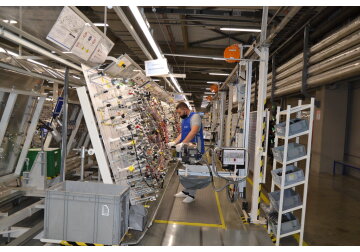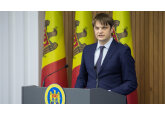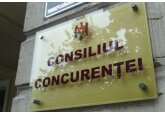
Residents of Moldova’s Free Economic Zones (FEZs) are concerned about the prospects for FEZs’ functioning in the country after 2026 and urge the authorities to pay close attention to the problems of FEZs’ development.
They stated this during a round table on the functioning of Free Economic Zones in Moldova after 2026, organized by the Association of Employers in the Processing Industry (APIP). It should be noted that in accordance with the provisions of articles 340 and 341 of the Association Agreement with the European Union, which entered into force on July 1, 2016, on state assistance to economic agents, all state assistance mechanisms created before the organization of the state aid body, including those provided for by the Law on Free Economic Zones, must be brought into line with the Association Agreement with the EU within a maximum period of 10 years from the date of its entry into force. The round table was attended by the Chairman of the Parliamentary Commission on Economy, Budget and Finance Dumitru Alaiba, Secretary of the Economic Council under the Prime Minister of Moldova Ion Lupan, Head of the Main Department of Tax and Customs Policy of the Ministry of Finance Dorel Noroc and Head of one of the departments of the Customs Service of Moldova Valeriu Cozarev. During the APIP discussions, representatives of investors from almost all FEZs operating in Moldova Umitomo, Draexlmaier, Gebauer, Lear, Magnetec, Methimgroup, Coroplast and others emphasized that each of the 8 FEZs operates on the basis of a separately adopted law. Some zones have been operating for almost 30 years, some for just over 10 years. Over the entire period of operation of the FEZs in Moldova, foreign investors have invested over 470 million euros in the country's economy, created over 16 thousand new jobs. The companies expressed concern about the functioning of the FEZs in Moldova after 2026. The participants of the round table discussed the possibility of applying in Moldova the experience of the EU member states, in particular, Latvia, Lithuania, Poland, and Hungary. Free economic zones still operate in these countries, despite the fact that the states have been members of the European Union for a long time, while Moldova has so far only signed an association agreement with the EU. In Lithuania, for example, there are 7 economic development centers of the country, in fact, they are free economic zones. The legislation provides for a period of their activity until 2035. There are 5 FEZs in Latvia, with the right to work until 2043. There are 14 special economic zones in Poland. In each of these countries, residents of the zones have adapted their production to local companies by placing orders with them, which increases the added value for the economies of these countries. Free economic zones operate in Northern Italy, the Canary Islands, as well as in a number of other EU countries. In total, there are 105 territories with the status of free economic zones in Europe. The participants of the APIP round table decided to address the leadership of Moldova with a request to carefully consider the problems of Moldova’s free economic zones’ development, considering their effectiveness and role in the economic development of the country in each specific case. At the same time, the majority of representatives of foreign investors expressed their concern about the negative information surrounding the free economic zones and, which is especially unacceptable for investors, the uncertainty that brings unacceptable risks regarding investments. It was emphasized that after the pandemic, it was registered a tendency to transfer part of the production assets of large European manufacturers from Asia closer to the main production - to Eastern Europe. In this regard, Moldova is considered as one of the most favorable territories. New projects and investments are already being prepared, but their fate will directly depend on the conditions in which they can be implemented, the participants of the meeting emphasized. APIP members, foreign investors and their representatives expressed their hope that Moldova’s leadership would be attentive to the problems of the FEZs and their residents, expressing their readiness to continue and expand their activities in Moldova and increase the size of investments on clear and long-term working conditions. // 23.02.2022 – InfoMarket







